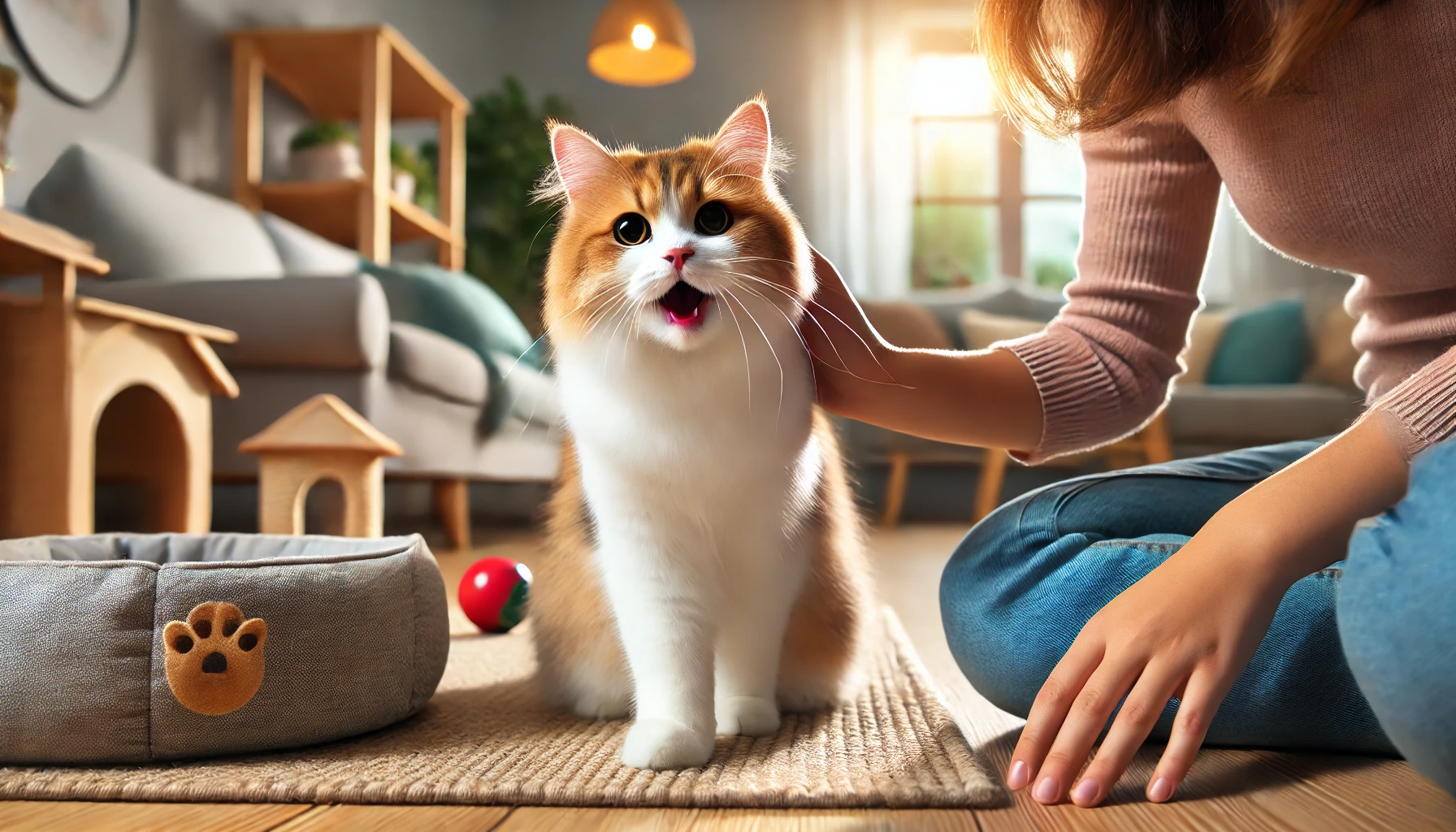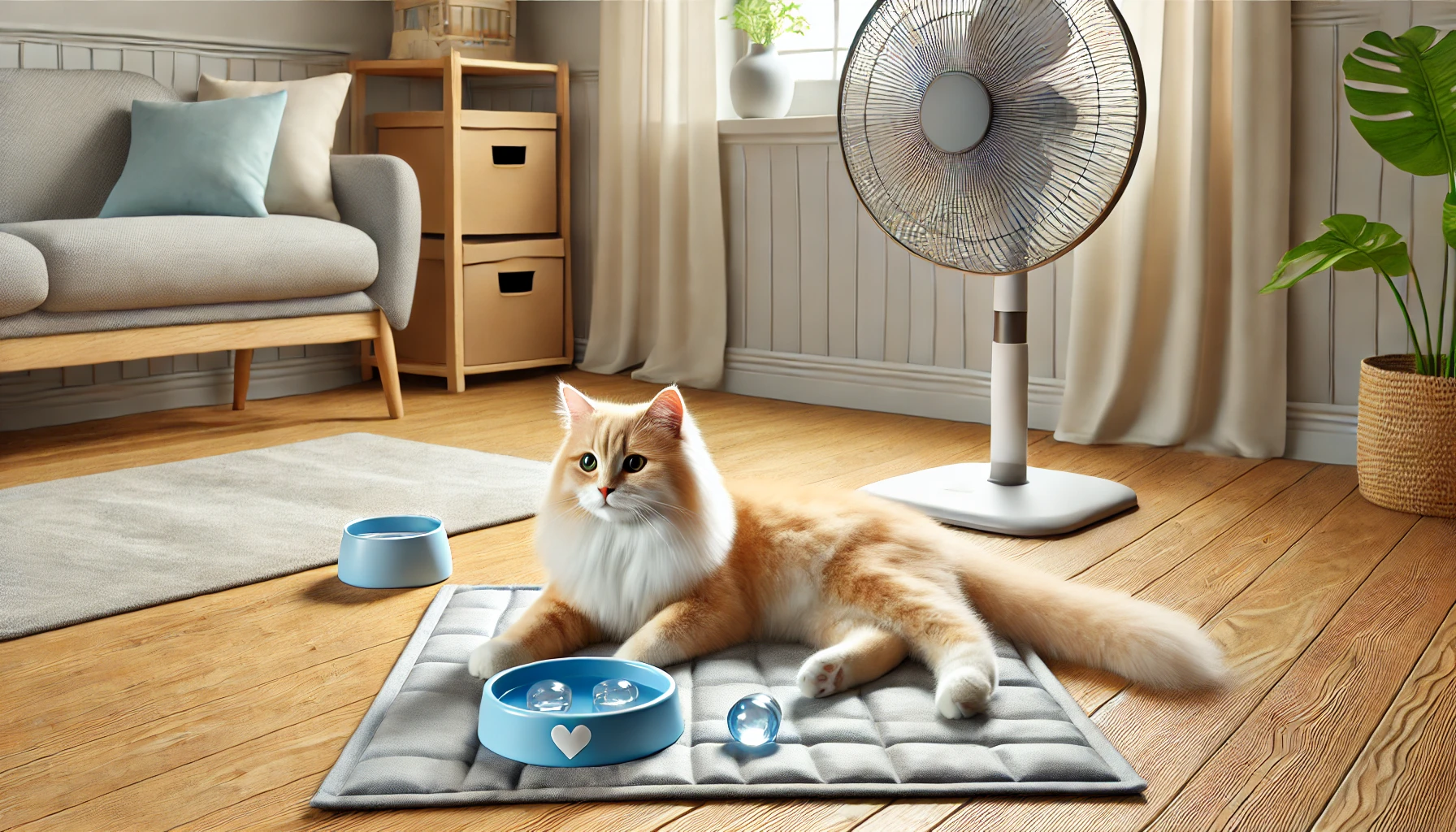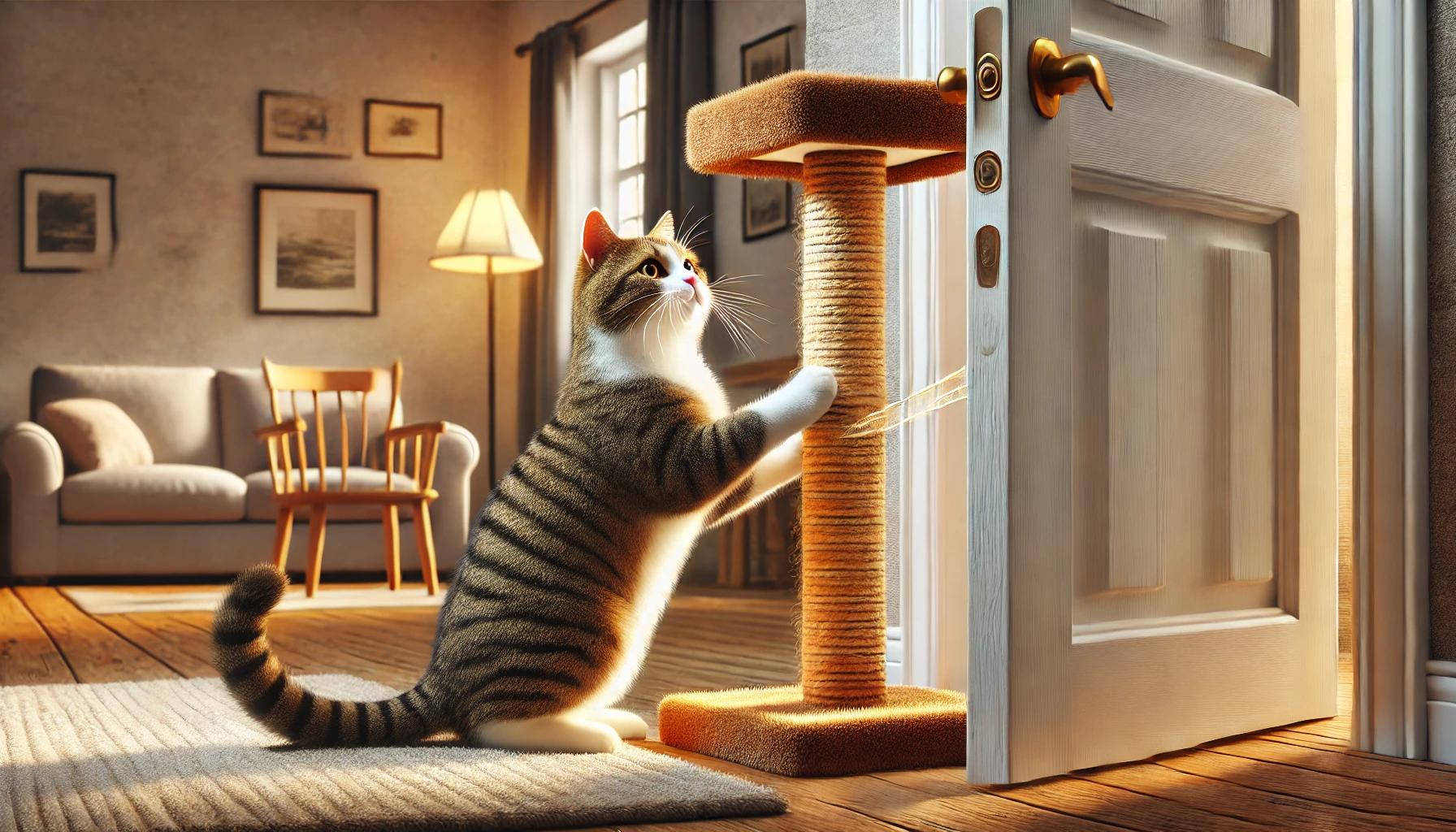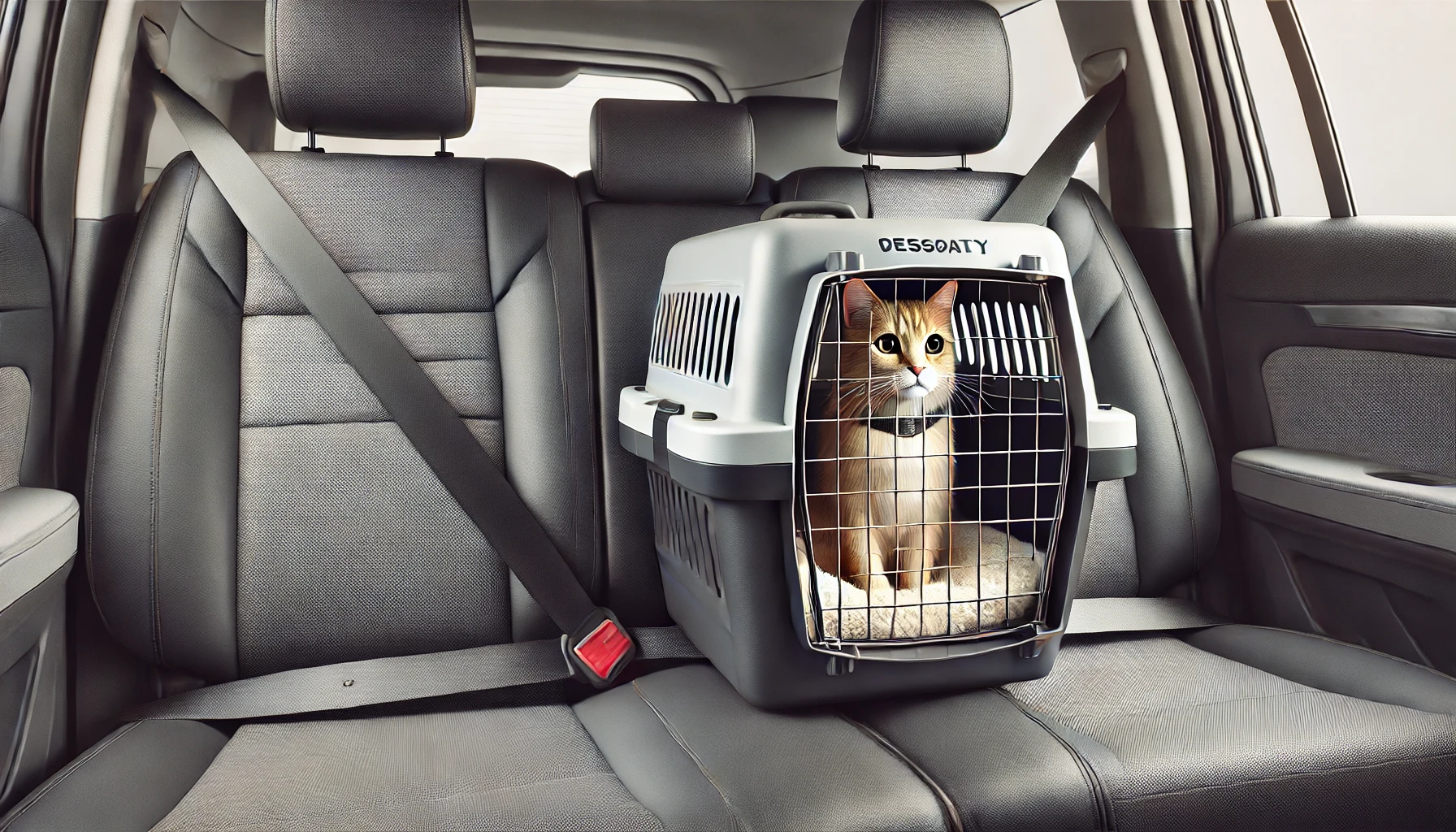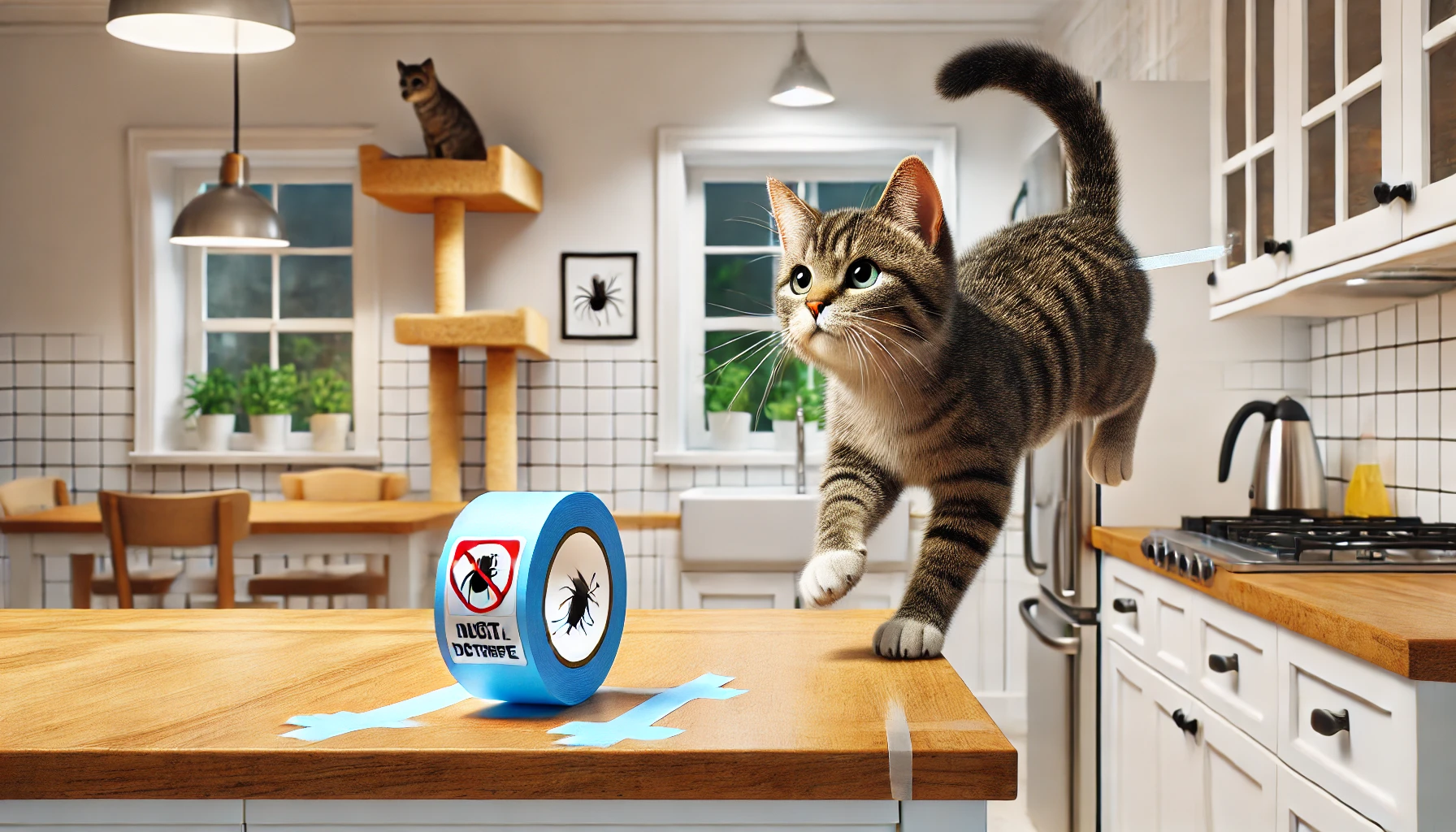Cats communicate through meows, but excessive vocalization can become disruptive. If your cat meows constantly, it could be due to hunger, attention-seeking, stress, or even a medical issue.
In this guide, you’ll learn why your cat is meowing excessively and how to reduce it while keeping them happy and healthy.
1. Identify the Reason Behind the Meowing
Cats meow for different reasons, and understanding why is the first step to solving the issue.
✅ Common Reasons Cats Meow Excessively:
✔ Hunger – Asking for food or treats.
✔ Attention-seeking – Wants playtime or petting.
✔ Loneliness or boredom – Needs mental stimulation.
✔ Stress or anxiety – Changes in the home, new pets, or routine disruptions.
✔ Medical issues – Pain, discomfort, or cognitive decline in senior cats.
✔ Breed tendency – Some breeds (like Siamese) are naturally more vocal.
🚨 If meowing suddenly increases, consult a vet to rule out health problems!
2. Feed Your Cat on a Consistent Schedule
Many cats meow excessively for food, especially if they’re used to being fed at random times.
✅ How to Reduce Meowing for Food:
✔ Feed your cat at the same times every day.
✔ Use an automatic feeder to maintain routine.
✔ Offer small meals throughout the day instead of one large meal.
🚨 Never give in to begging—rewarding it reinforces the behavior!
3. Provide More Mental and Physical Stimulation
Bored cats meow more to get attention. Keeping them entertained reduces excessive vocalization.
✅ Ways to Keep Your Cat Engaged:
✔ Play with interactive toys (wand toys, laser pointers, puzzle feeders).
✔ Provide a cat tree or window perch for stimulation.
✔ Rotate different toys to prevent boredom.
🚨 If your cat meows out of boredom, daily playtime will help!
4. Avoid Giving Attention for Unwanted Meowing
If your cat meows for attention and you always respond, they will learn to meow more.
✅ How to Train Them to Meow Less:
✔ Ignore unwanted meowing (avoid eye contact or talking).
✔ Reward quiet behavior with treats or affection.
✔ Only give attention when they are calm.
🚨 Common Mistake: Scolding or yelling at your cat.
Instead: Stay patient and reward silence instead of meows.
5. Create a Calm and Stress-Free Environment
Cats meow more when they feel stressed or anxious.
✅ How to Reduce Stress-Induced Meowing:
✔ Keep a consistent daily routine.
✔ Use Feliway pheromone diffusers to create a calming atmosphere.
✔ Provide a quiet space for your cat to retreat when needed.
🚨 If your cat meows excessively after a big change (new pet, moving, new baby), give them extra comfort and time to adjust.
6. Don’t Give Treats Every Time They Meow
Some cats learn that meowing = getting treats, so they keep doing it.
✅ How to Break the Habit:
✔ Only give treats when they are quiet.
✔ Use food puzzle toys instead of hand-feeding treats.
✔ Gradually reduce treat frequency to avoid overdependence.
🚨 If your cat meows and you give treats every time, they will meow even more!
7. Address Nighttime Meowing
Some cats become more vocal at night, which can disturb your sleep.
✅ How to Stop Nighttime Meowing:
✔ Play with your cat before bedtime to tire them out.
✔ Provide a comfortable sleeping spot near you.
✔ Ensure they have food, water, and a clean litter box before bed.
🚨 If your cat is older, nighttime meowing could be a sign of cognitive decline—consult a vet if needed.
8. Understand Breed-Specific Vocal Tendencies
Some cat breeds naturally meow more than others.
✅ Breeds Known for Being Vocal:
✔ Siamese – Loud and talkative.
✔ Bengal – Loves to “chat” with owners.
✔ Maine Coon – Trills and chirps frequently.
✔ Oriental Shorthair – Constant conversationalist.
🚨 If you have a talkative breed, training can help reduce excessive noise, but some meowing is natural!
9. Rule Out Medical Issues
If meowing suddenly increases, it could indicate a health problem.
🚨 When to See a Vet:
❌ Meowing is constant and unusual.
❌ Signs of pain (limping, avoiding touch, excessive licking).
❌ Changes in appetite, litter box use, or behavior.
🚨 Older cats may develop hyperthyroidism or cognitive dysfunction, which can cause excessive meowing.
10. Be Patient and Consistent
Training a cat to meow less takes time, but consistency leads to results.
🐾 Signs of Progress:
✅ Meowing decreases when you ignore it.
✅ Cat waits for food without constant meowing.
✅ Less vocalization at night.
🚨 If you give in to meowing even once, they will start again—stay consistent!
Final Thoughts
Excessive meowing can be frustrating, but with patience, training, and understanding, you can help your cat become calmer and quieter.
🐱 Key Takeaways:
✅ Identify why your cat is meowing.
✅ Feed on a schedule to prevent begging.
✅ Provide toys, playtime, and enrichment.
✅ Ignore attention-seeking meows and reward silence.
✅ Reduce stress with a calm environment.
✅ Address nighttime meowing with pre-bedtime play.
✅ Rule out medical issues with a vet check-up.
With consistent training and care, your cat will learn to communicate in a quieter way! 🐾💖

